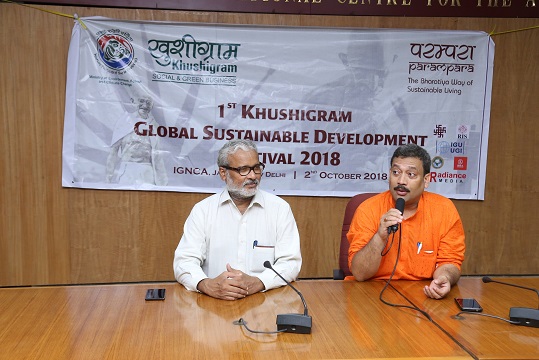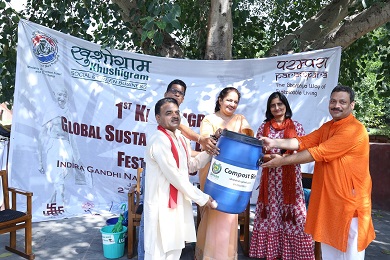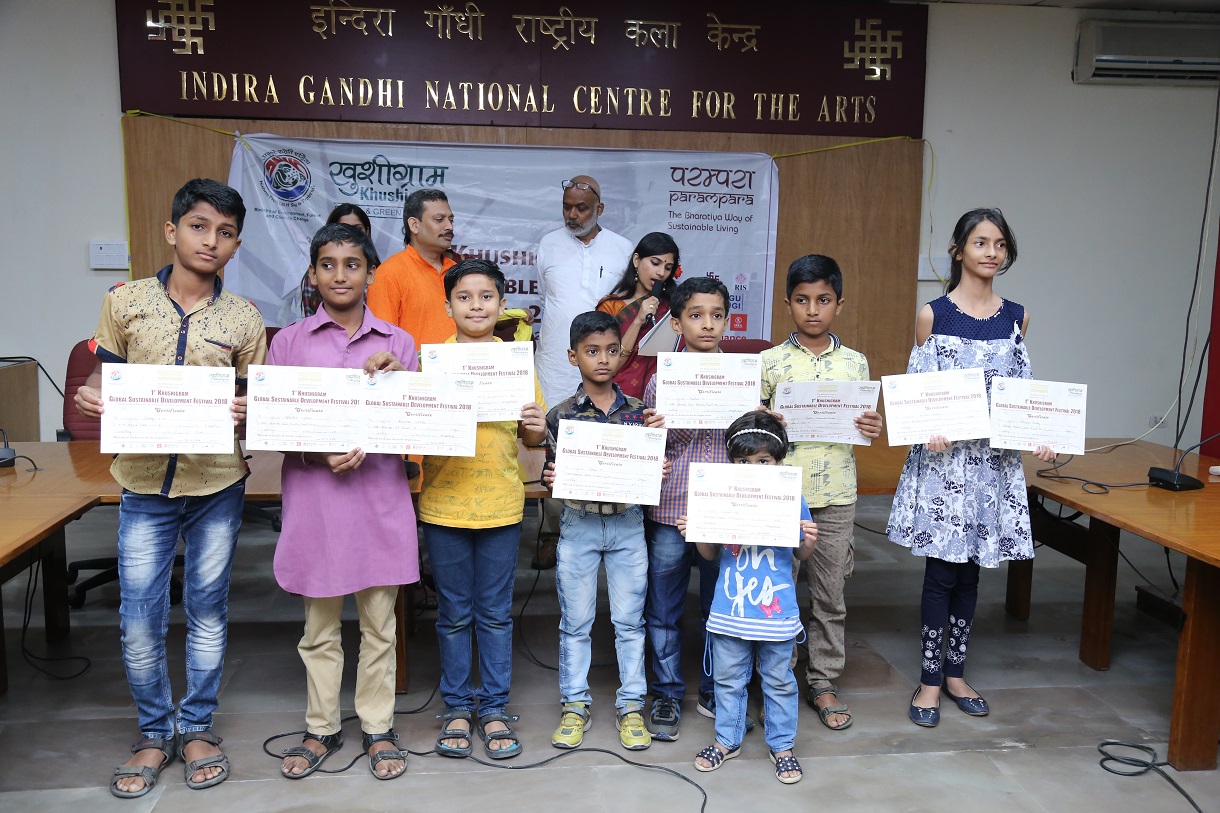21st Livestock Census paves way for improved data and Sustainable Development
Livestock Census shapes policies, ensures sustainable growth of India’s Livestock Sector: Rajiv Ranjan Singh
21st Livestock Census to cover over 30 crore households; Capture data on
Gender Roles in Livestock Sector
Union
Minister, Ministry of Fisheries, Animal Husbandry and Dairying, Rajiv Ranjan Singh
alias Lalan Singh launched the 21st Livestock Census in New Delhi today. The
event was also attended by Ministers of State, Ministry of Fisheries, Animal
Husbandry and Dairying Prof SP Singh Baghel and George Kurian, Amitabh Kant,
G20 Sherpa, Secretary Department of Animal Husbandry and Dairying (DAHD), Alka
Upadhyay, Abhijeet Mitra, Animal Husbandry Commissioner and other senior
officials. Representatives from all 36 States and Union Territories were
present on the occasion, looking at the significance of this landmark
initiative that takes place after five years.
Union Minister
for Animal Husbandry and Dairying,
Rajiv Ranjan Singh, in his keynote address, emphasized the critical role the
Livestock Census plays in shaping policies that ensure the sustainable growth
of India’s livestock sector. He noted, “India’s livestock sector is not only a
major contributor to our rural economy but also a significant source of
nutrition, employment, and income for millions of households. The 21st Livestock Census will provide us with
updated data on the livestock population, which will allow the government to
address key issues like disease control, breed improvement, and rural
livelihoods. With the digital advancements introduced in this census,
we are confident that the data collected will be more accurate, timely, and
comprehensive than ever before.”
The Union
Minister also highlighted the innovations brought in this census, such as the
mobile application for data collection and real-time monitoring through a
web-based dashboard, marking a significant step towards modernization of data
collection methodologies.
Minister of State, Ministry of Fisheries, Animal
Husbandry and Dairying, Prof SP Singh Baghel, lauded the efforts made by the
Department in preparing for the census and ensuring its smooth rollout across
all States and UTs. “The Livestock Census is more than just a headcount; it’s a
crucial exercise that feeds into our national strategies for food security,
poverty alleviation, and rural development. This census, with its focus on
Gender Roles in Livestock Rearing and real-time data collection, will give us
fresh insights into the sector and enable us to implement more effective
programs.”
Minister of
State, Ministry of Fisheries, Animal Husbandry and Dairying, George Kurian, highlighted the
sector’s contribution to the GDP and employment generation, particularly in
rural areas. He said “Livestock provides livelihoods to over 2.1 crore people
and is integral to India’s agricultural economy. The data gathered through the
21st Livestock Census will help us identify areas where interventions are
needed to uplift rural livelihoods and improve animal health.”
Amitabh Kant,
Sherpa to the G20, delivered an insightful speech on the importance of aligning
the livestock sector with global best practices and Sustainable Development
Goals (SDGs). He stressed, “The 21st Livestock Census is crucial for
identifying opportunities to boost productivity, enhance animal health, and
support rural communities. By ensuring comprehensive and reliable data, this
census will empower the government to make informed decisions that drive growth
and ensure food security in line with the SDGs.”
Dr VK Paul, Member (Health), NITI Aayog, emphasized
that the 21st Livestock Census signifies India’s unwavering commitment to
comprehensively understanding its vast and diverse livestock resources—an
invaluable asset that underpins the nation's agricultural economy, bolsters
food security, and supports rural livelihoods. He underscored that the
collection of reliable, granular data on livestock populations and breeds will
empower us to address critical health, productivity, and sustainability
challenges within the livestock sector. In the long term, these insights will
guide the development of a resilient animal husbandry ecosystem that aligns
seamlessly with India’s health, nutritional, and economic priorities for the
benefit of communities across the country.
Secretary,
DAHD Alka Upadhyay, provided an overview of the extensive preparations leading
up to the launch of the census. “We have trained over 1 lakh field personnel,
conducted regional and state-level training programs, and developed a robust
digital infrastructure to ensure that data collection is seamless and accurate.
The innovations introduced in this census, including offline data capture,
breed identification through images, and real-time monitoring, will ensure that
this exercise is conducted efficiently across India.”
The 21st
Livestock Census will cover over 30 crore households across all States and
Union Territories, including nomadic communities and pastoralists, ensuring
that the diversity of India’s livestock practices is captured. The census will
focus on critical areas such as Gender Roles in Livestock Rearing, breed
management, animal health and productivity.

















